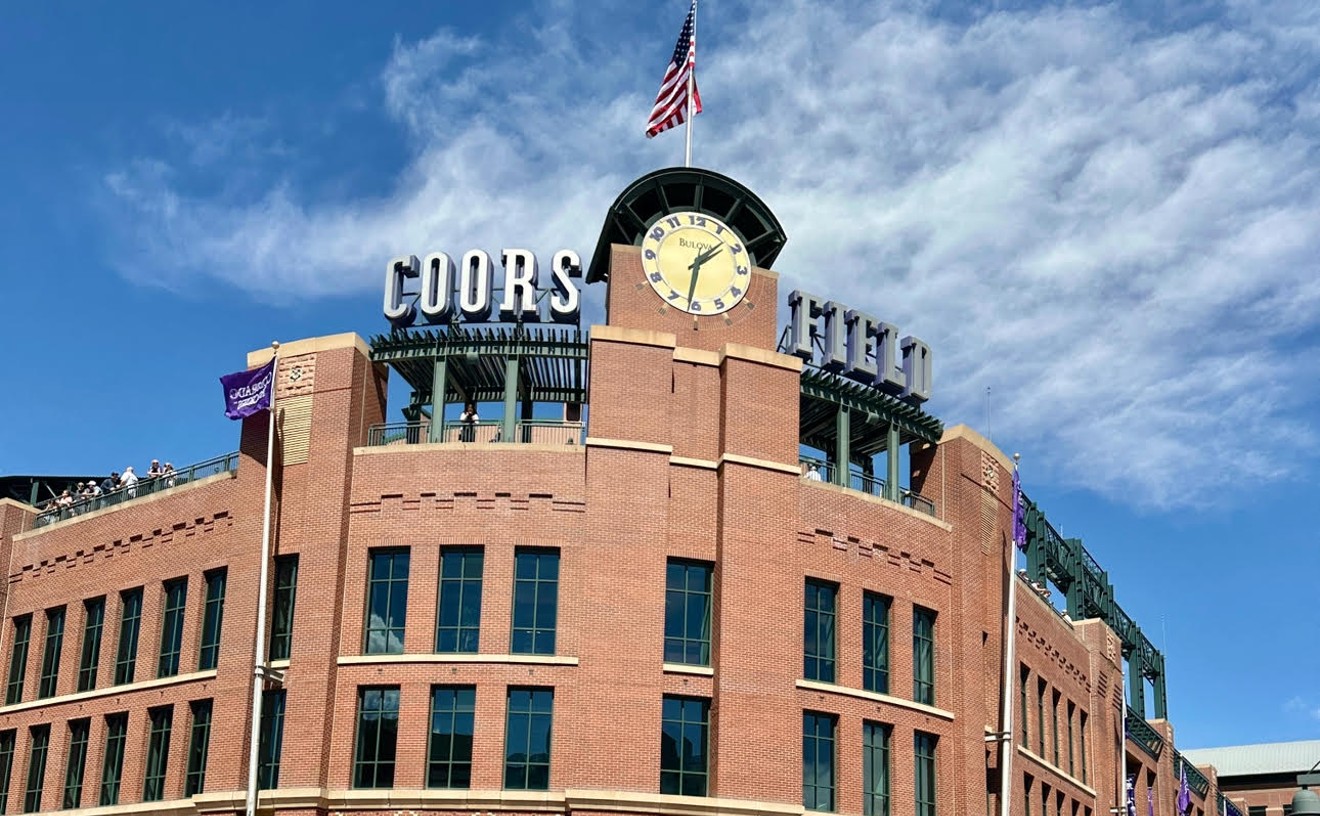No, it's not a mirage. What you're seeing really is a small, grassy island on the west side of Washington Park's Smith Lake.
Installed earlier today, the man-made floating isle is part of pilot program that the Colorado Division of Wildlife and Denver Parks and Recreation hopes will help restore wildlife habitat in the park and improve the quality or the murky water. A total of four islands (at 36, 45, 80 and 150 square feet, respectively) are set to hit the water this week.
Made by Headwater Floating Islands, a Montana company, the islands will be planted with native wetlands plants that should eventually attract red-wing blackbirds, ducks, cormorants, songbirds, frogs, turtles, dragonflies and maybe even beavers (at least according to one person). The islands will also provide shade and underwater resting spots for fish.
Denver parks-and-rec spokeswoman Jill McGranahan says the agencies won't be able to measure success for at least a year. But if the islands work, Denver could try to install floating islands at other parks. Wash Park was first because it has a strong neighborhood organization, Friends and Neighbors of Washington Park, that has offered to monitor the islands and report back to the Division of Wildlife, she adds.
One of the keys will be to keep people, dogs and paddle boaters away from the islands, says DOW spokeswoman Jennifer Churchill. And no sunbathing is allowed, she adds, since the islands, which are anchored by cement blocks, can capsize.
Of course, the wildlife habitat also makes a perfect little landscape for caimans, the small, but dangerous alligator-cousins that some people keep as pets. Back in August 1998, a number of people reported seeing a caiman (possibly a pet that someone grew tired of and released) lurking in Grasmere Lake, Washington Park's other lake. Traps were set, the lake was partially drained and people fled in terror. But despite a week's worth of summertime panic (and alleged duck population declines) the lake's Loch Ness Monster was never captured.
"We are hoping not to get any more caimans," McGranahan says.
Westword will update this story if we find out any more about when the other three islands will hit the water, and whether beavers or caimans are involved....











